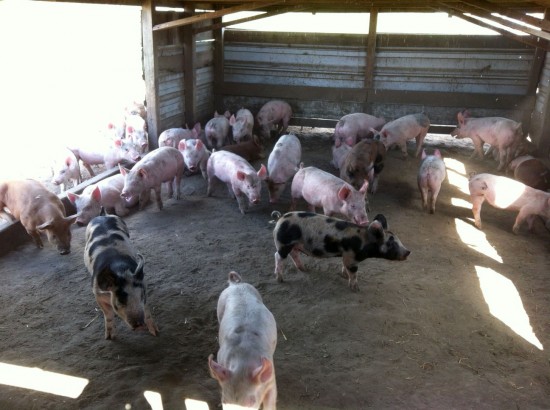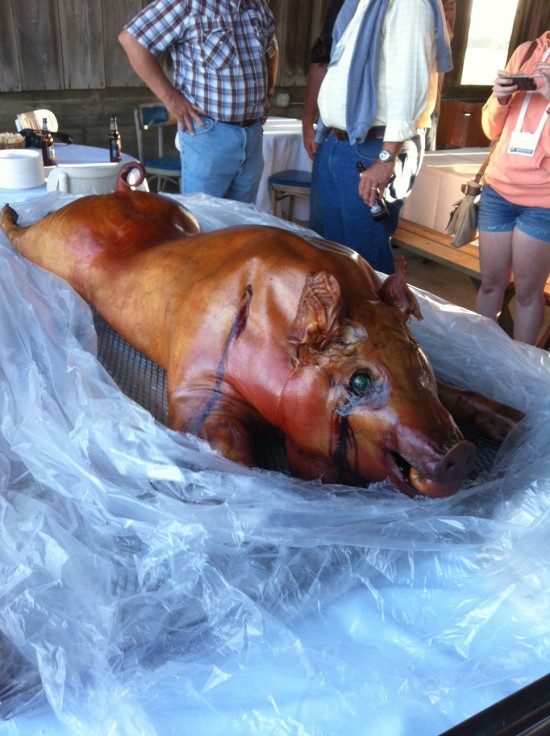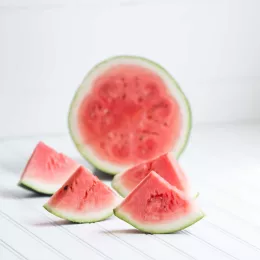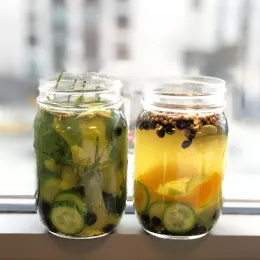Have you ever heard a person refer to someone being as “happy as a pig in $h!+?” No? Well, maybe you didn’t grow up in the deep South like me, but trust me, it’s a thing.
Poetic as it may be, it’s not terribly accurate. In fact, it’s the PG version of that saying: “happy as a pig in slop” that tells the real story.
![photo 1[1]](/sites/default/files/inline-images/migrated/2013/09/photo-11-300x401.jpg)
I recently had the opportunity to fly out to Iowa with Chef’s Collaborative and Niman Ranch for their annual Hog Farmer’s Appreciation Weekend. It was a two-day event dedicated to celebrating the hard-working men and women who are committed to raising animals the right way, passionate farmers who choose patience over profits.
At Paul Brown’s Aderland Farm in New Providence, Iowa we saw the painstaking approach that he and his family employ to raise happy, healthy hogs in a sustainable manner. Large fields of pigs, separated by age, played in a happy mixture of sun and mud. Every year Paul rotates the animals’ shelters to a new plot of land, replanting the former plot to ensure that the soil naturally replenishes itself.
With space, fresh air and regular attention from caring farmers, these animals do not require antibiotics. They are fed a carefully formulated vegetable diet, safely and naturally growing to a healthy size. Needless to say these pigs, in their slop, were about as happy as they could be.

On the other hand, we also saw what I’ll gently refer to as unhappy pigs. Traveling through Iowa hog country, we passed a number of CAFO’s (concentrated animal feeding operations). Up to 3,000 animals live in a single shed, with little room to move. Their lives are so strictly confined, in fact, that some may live their entire life without ever seeing the sun.
These pigs don’t live, they survive—standing pressed together over grated metal floors, just feet above tons of their own… you guessed it. These are the practices of industrial animal farming, whose only concern is creating a product at the lowest possible cost, without concern for the impact on the animals or the environment.

Here at ICE, we are excited about opportunities to expose our students to sustainable organizations like Niman Ranch, as well as local producers in the nearby Hudson Valley. We hope these educational initiatives will inspire both the future professional chefs and ambitious amateurs who grace our classrooms to make responsible choices about the provenance and quality of the ingredients they choose.



